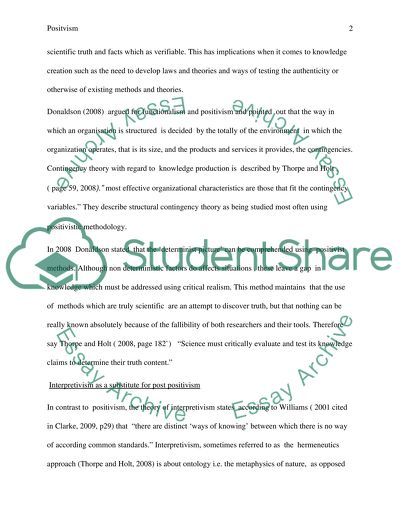Cite this document
(“The philosophical position of positivism and its role int he Essay”, n.d.)
Retrieved from https://studentshare.org/philosophy/1429039-the-philosophical-position-of-positivism-and-its-role-int-he-management-knowledge-creation-process
Retrieved from https://studentshare.org/philosophy/1429039-the-philosophical-position-of-positivism-and-its-role-int-he-management-knowledge-creation-process
(The Philosophical Position of Positivism and Its Role Int He Essay)
https://studentshare.org/philosophy/1429039-the-philosophical-position-of-positivism-and-its-role-int-he-management-knowledge-creation-process.
https://studentshare.org/philosophy/1429039-the-philosophical-position-of-positivism-and-its-role-int-he-management-knowledge-creation-process.
“The Philosophical Position of Positivism and Its Role Int He Essay”, n.d. https://studentshare.org/philosophy/1429039-the-philosophical-position-of-positivism-and-its-role-int-he-management-knowledge-creation-process.


